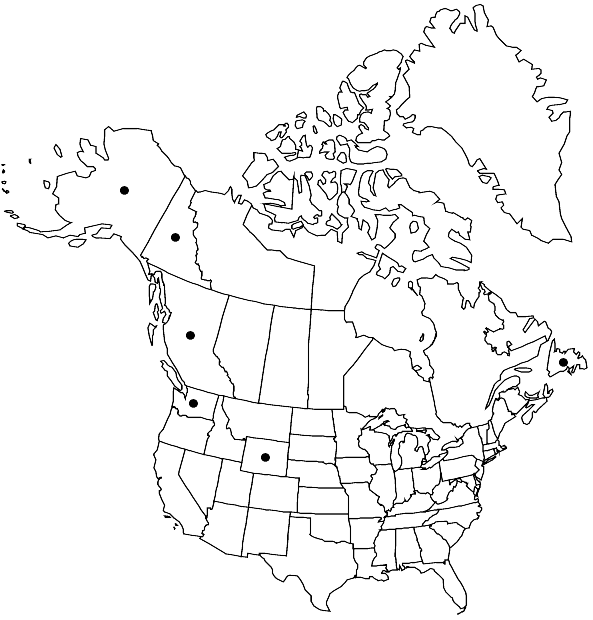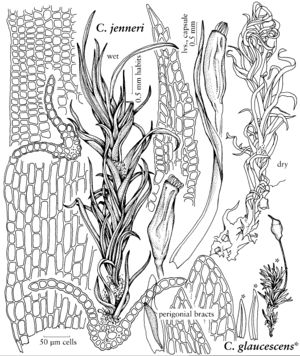Cynodontium jenneri
Ann. Scott. Nat. Hist. 15(58): 106. 1906,.
Stems to 5 cm. Leaves to 6 mm, narrowly lanceolate, long-acuminate to aciculose; leaf margins plane or some leaves shortly recurved at mid leaf, never to the apex, 1-stratose with patches of 2-stratose cells on one or both margins; cells of lamina essentially smooth with scattered low papilla, nearly smooth in apical region, thin-walled, often lax, angular, distal cells 12–14(–20) µm wide. Perigonium sessile. Seta ca. 1 cm, straight wet or dry. Capsule symmetrical, erect, not strumose; annulus well developed, deciduous, of 2 rows of large, separating cells.
Phenology: Capsules mature summer.
Habitat: Shady rock, soil over rock, occasionally rotting wood
Elevation: low to moderate elevations
Distribution

B.C., Nfld. and Labr. (Nfld.), Yukon, Alaska, Wash., Wyo., Europe, Atlantic Islands (Faroes).
Discussion
Cynodontium jenneri is a tall, luxuriant species with long, flexuose leaves of a dilute yellow color, and pellucid areolation due to the relative scarcity of cell ornamen-tation (papillae) or distortion (mammillae). This is an oceanic species of western Europe, the Pacific Northwest, and the Avalon Peninsula of Newfoundland (H. A. Crum and L. E. Anderson 1981). See discussion under 8. C. polycarpon.
Selected References
None.
